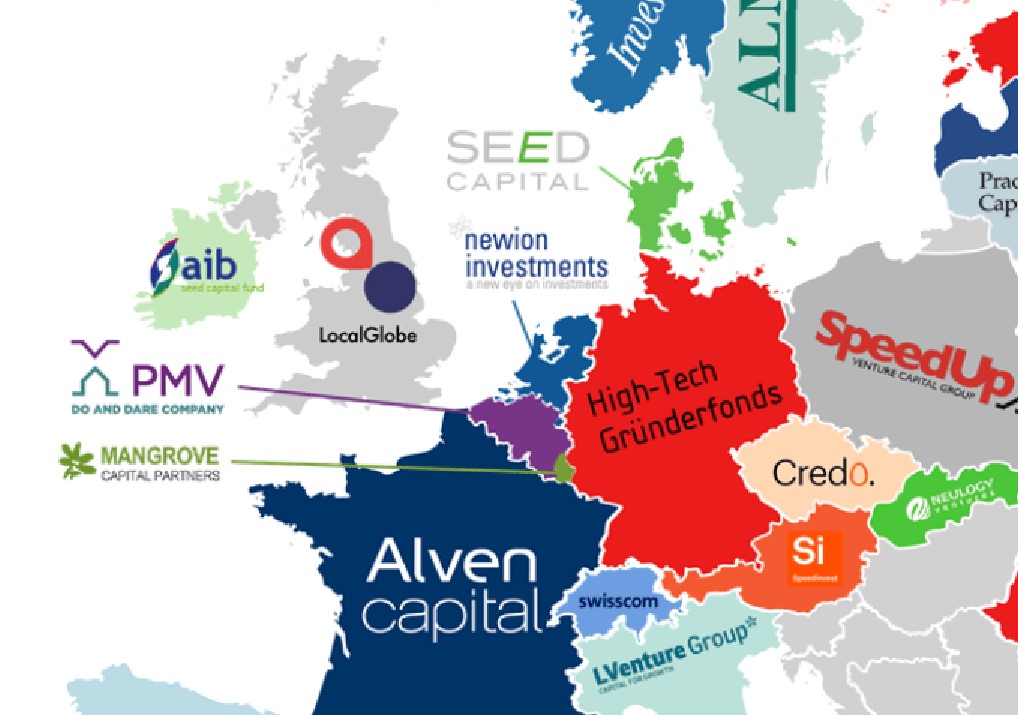Venture capital provides critical funding for innovative startups with high growth potential across Europe. Setting up a venture capital firm requires extensive planning, a large network, fundraising skills and a top-notch team. This guide covers the key steps involved in launching your own venture capital firm in Europe.
Define Your Strategy
The first step is defining your VC firm’s investment strategy. This includes:
– Stage of funding – Do you want to focus on early stage seed funding, Series A, B rounds or later stage growth equity? Most VC firms specialize in specific stages.
– Industry sectors – Identify the sectors and niches you want to target like fintech, biotech, AI, cybersecurity etc. Leverage your team’s expertise in these spaces.
– Geographies – Will you invest in startups across Europe or specific countries/regions? Factor in geographic proximity to your office.
– Deal ticket size – The average investment cheque sizes you are comfortable writing. This often ranges from $500K at seed stage to $5-10 million in Series B.
– Value-add – Determine how your firm will differentiate and add value besides capital like connections, recruiting, product feedback etc.
Having a well-defined thesis will guide your deal sourcing, due diligence and portfolio support. It also signals your focus areas to founders.
Build an Exceptional Team
A venture capital firm is only as good as its team. Hire professionals with complementary skills:
– Investing experience – Recruit investment bankers, PE/VC professionals who can source deals, conduct due diligence and negotiate favorable terms.
– Industry expertise – Bring on board specialists with operating experience in your sectors of interest that can evaluate startups.
– Financial and legal acumen – Add finance and legal experts to ensure regulatory compliance and manage LPs.
– Network – Well-connected individuals who can expand your access to deal flow and limited partners.
Aim for a team with diverse backgrounds like tech, business strategy, sales and marketing. Partner composition also affects fundraising as LPs commit capital to specific teams.
Craft a Compelling Fundraising Pitch
You need to raise capital for your maiden venture fund from limited partners (LPs) like pension funds, endowments, foundations, family offices and high net worth individuals.
To attract LPs, you need a persuasive pitch deck covering:
– Team credentials – Introduce your partners and emphasize their investing experience, sector expertise and track record.
– Investment strategy – Articulate your clearly defined strategy in terms of sector focus, stage, geographies, differentiate value-add etc.
– Market opportunity – Describe the high-growth potential in your target sectors and geographies. Support with relevant data.
– Fund details – Specify your targeted fund size, management fees, carry structure, investment period, term etc.
– Past successes – If possible, include specific examples of profitable exits and unicorn startups your partners have backed.
– Compliance – Emphasize your regulatory compliance and reporting processes to gain LPs’ trust.
A combination of an experienced team, differentiated strategy and demonstrating sector momentum can attract investor interest.
Set Up Operations
Once you start securing LP commitments, it’s time to establish your VC firm’s operations:
– Register legal entity – Set up the GP entity, determine ownership structure between partners, compensation arrangements etc.
– Office space – Secure office premises in a prime location to meet founders and partners. Optimize for collaboration.
– Hire staff – Recruit analysts, associates to conduct research and due diligence under partners’ guidance.
– Get licenses – Apply for all necessary financial and regulatory licenses based on your jurisdiction.
– Compliance processes – Implement compliance policies like KYC, AML, audits, fund administration, reporting procedures.
– Legal support – Appoint law firms to help with drafting documents, structuring deals, regulatory issues as needed.
– Insurance – Purchase D&O insurance, GP liability insurance to cover potential risks.
– CRM system – Install a CRM platform to track deal flow, investor communications, portfolio data in one place.
Don’t underestimate the time and effort required to build robust operational processes and infrastructure, while also fundraising.
Start Investing!
Once your fund closes and operations are in place, it’s time to start sourcing and investing in startups:
– Deal sourcing – Leverage your network and partnerships to find promising startups. Attend events, get referrals from co-investors, founders in portfolio etc.
– Due diligence – Assess the founders, business model, market dynamics, finances, risks etc. Conduct on-site visits and reference calls.
– Investment decision – Partners collectively decide based on due diligence findings. Assess strategy fit, risks, potential returns.
– Term sheet and negotiation – Issue term sheets to startups with proposed deal terms. Negotiate to finalize investment terms.
– Closing and wire transfer – Coordinate signing of agreements, regulatory paperwork, fund transfer to the startup’s account.
– Portfolio engagement – Guide portfolio companies via board seats, strategic advice, connections to partners, recruiting etc.
– Exits – Plan liquidity events like M&As or IPOs for mature companies. Distribute returns to LPs.
As you gain experience across investment cycles, your deal sourcing, evaluation and portfolio support skills will improve.
Build Your Brand as a Top VC Firm
Gaining visibility and reputation among founders, investors and regulators is crucial:
– Industry associations – Join regional and global VC associations. Participate in events and workshops.
– Conferences – Speak at startup conferences and meetups to share your expertise. Attend them to network.
– Media visibility – Give interviews. Contribute articles to VC/startup publications. Promote news of your new fundraises.
– Social media – Have active LinkedIn and Twitter accounts to engage with the ecosystem. Share news and insights.
– Website and content – Create a website that communicates your firm’s thesis, team profiles, portfolio etc. Publish blogs and resources.
– PR outreach – Proactively build relationships with tech/business journalists to get press coverage.
– Founder-friendly reputation – Treat founders with empathy and integrity. Be known for founder-friendly terms.
Consistent engagement across channels helps position your firm as a preferred capital partner for startups in your domains.
By executing on these elements methodically and leveraging your team’s experience, you can build a successful venture capital franchise in Europe. Stay nimble to adapt to market changes. Venture Capital in Europe is booming in recent years.
Starting a VC Firm in Europe – Considerations by Professional Background
| Professional Background | Relevant Experience | Network | Key Steps |
| Investment Banking | Evaluating companies, structuring deals, raising capital | Corporations, PE/VC firms, HNW individuals | Use M&A, capital markets expertise. Leverage existing relationships with investors to fundraise. |
| Private Equity | Later stage investing, operational value-add, exits | Corporations, banks, owners | Apply due diligence and portfolio management skills. Partner with sector experts. |
| Venture Capital | Early stage investing, startup operations, exits | Startup ecosystem, tech community | Leverage your VC track record. Hire strong deal sourcing team. |
| Investment Management | Portfolio management, fund administration | Pension funds, endowments | Highlight compliance expertise. Recruit investment professionals. |
| Technology Sector | Domain expertise, startup experience | Founders, tech talent | Source deals based on technology insights. Attract talented founders. |
| Consulting | Strategic analysis, developing insights | Corporate clients, startups | Apply problem-solving skills during due diligence. Recruit deal partners. |
| Law / Accounting | Compliance, regulations, structuring deals | Companies, HNW individuals | Manage legal aspects of fundraising, deals. Highlight diligence. |
| Entrepreneur | Startup experience, empathy for founders | Startup ecosystem | Share lessons from your entrepreneurial experience. Add true value. |

